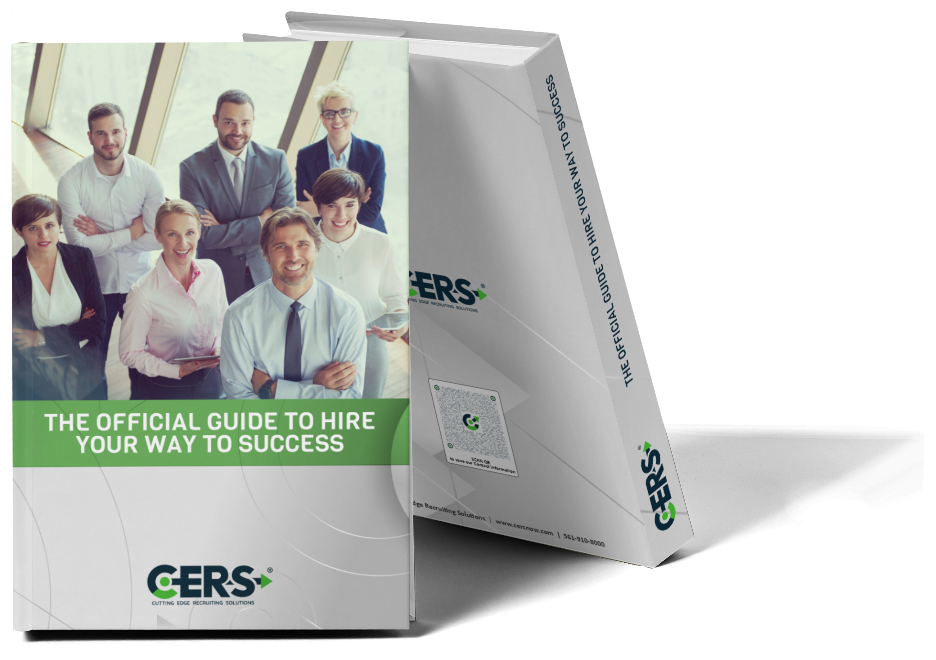Changing careers is a huge life decision. For many of you, you’ve spent years building up your career, and with so much time invested in perfecting your skills, walking away is no small feat. But for some, it can seem like an eventual necessity.
Perhaps you’ve grown bored of your job, or you no longer find your job duties fulfilling. Maybe you’ve come to realization that you can’t stand the type of people your job’s industry tends to attract. Maybe some new technology has come along and threatened your job security. Or maybe you never really liked your profession and it took a decade or two for you to figure it out.
There are literally dozens of reasons a person might feel like it is time for a new career, and if you think it’s time you entertain the idea, that’s absolutely fine. However, we advise that you take a step back before you make that leap and first assess why you want to change careers. Changing careers is sometimes a monumentally difficult task, and one that should not be undertaken lightly.
First – consider the difficulties of changing careers
Before you go diving head first into your plan to change careers, you should consider the difficulties that will lie ahead. For starters, when you begin a new career, more than likely you will begin it at the bottom. If you’ve spent the past couple of years or decades working your way up from an entry level position, keep in mind you’ll probably have to start all over again. This typically means less responsibility, less interesting work, and most importantly, less pay. Are you at a point in your life where a significant pay decrease is feasible? For most of us, the answer is no.
Another issue that might arise when you try to change careers is the need for additional training or education. If you went to school to prepare you for a specific profession, and you’re now trying to do something completely different, in some cases you may need to go back to school, which is not only time consuming, but expensive. This will of course depend on your current skill set, and what you’re trying to transition into, but it’s a strong possibility that you’ll end up spending a significant amount of money and time to successfully change careers.
Finally, even if you’ve fully planned this out, and have the financial means to get another degree, and a totally new career, that still doesn’t mean you’ll be able to get it just like that. Job searches can be difficult, and a person attempting to change careers may face more roadblocks compared to other entry-level candidates right out of college competing for the same jobs. (Yes, ageism is not right, but sadly it still happens.) The last thing you want is to abandon your current career only to find that you are unable to get your foot in the door at another.
With all of the potential difficulties associated with a career change, keep in mind there are other options before you decide to fully switch careers. There might be a way for you to get a new job that you had not considered, one which won’t require you to start all over again or obtain dozens of new skills.
Next – consider these alternatives to changing careers
Let’s say that you’ve been working at a medium-to-large company within the same role for a while, and the thought of changing careers crosses your mind. Maybe all you need is something just a little different; after all, you may not have issues with management or the company in question, maybe you’re just a little bored of the work you’re doing. The first thing you may want to consider is simply switching departments.
Large organizations tend to have different areas with different responsibilities, and there might be an opening in one of them that you can transfer into. This method has several advantages. For starters, a company is more likely to hire from within, and if you’re a valued employee, management would much rather see you in another department rather than leave the company, potentially for a competitor. Since your company is familiar with you, you’re less likely to start out at the bottom, which means a more reasonable salary. This way, your work duties change slightly and you don’t have to deal with some of the drawbacks that come from going somewhere new or completely starting over.
The next alternative is to switch to another company or industry altogether. Perhaps the skills you have could be applied in a different line of work, allowing you to continue using them without starting over. For example, if you’re a journalist, you could attempt to switch to a career in public relations. This is a different industry, but many of your existing skills would carry over. And, as a former member of the press, you would know the best ways to work with them in your new public relations role. In this example you get to do different work, and have a different career path, but without too drastic of a change. You want to look for a place where you can still use the skills you’ve acquired, and where you won’t need to start over from scratch. Sometimes a change in industry is the solution.
If you’re absolutely dead set on changing careers
So you’ve thought about all of the difficulties that come with changing careers, considered all of your other options, and found that you still want to change your career. Your heart is set on it, and you know that it is the best move for you. Now all you have to concern yourself with is making your career switch successful.
First, you’ll need to research the career you want to change to. What sort of skills does it require? What does the work entail? Is this job typically done within a large company, a small local business, or someplace else? What will the compensation look like in the next 5, 10, 20 years? The more information you learn about your new career track, the better.
After that, you’ll obviously have to start getting the necessary skills or education required. This step could take a while, so you want to get started on it sooner rather than later. Do you need a new degree for this new career? If so, start looking into schools, and the classes you’ll need to take. Does this new job require some sort of certification or special training? Again, now is the time to find this out, and begin planning how to meet the job requirements. If possible, do this before leaving your current job so that you can at least continue to earn an income while you prepare.
Tweak your resume to tailor your relevant skills to your new career
Once you have the skills needed, or you’re on your way towards getting them, you can begin to build up your resume. On your resume, highlight the skills relevant to the job and showcase how your past experiences are relevant to this new role. Even if your new career is completely different from your old one, there are likely some skills that remain in common – such as attention to detail, time management, or organizational skills.
Look over a few job descriptions for roles within the career you’re trying to break into. Take note of which skill sets you’re going to want to highlight on your resume for employers. If possible, provide as many details on the skill as you can, and try to include any results-based achievements. For instance, rather than listing “experience with social media,” you could replace it with “increased social media engagement by 20%,” effectively killing two birds with one stone.
This will shift the focus of your resume on to your skills, rather than your past work experience (since it might not apply). If you’re going to use an example like the one above, be ready to elaborate on what you specifically did to move the needle.
(For more info on how to review your resume for your next career, click here for our resume writing tips.)
Interviewing for the job
With your resume all set, now it’s time to start thinking about the interview. During the interview, you may find that some employers are hesitant to hire someone who is changing careers. You need to try and work this in your favor, and show that this isn’t a negative. For example, talk about how you’ve always had a passion in this area, and you’re finally ready to pursue it. Show the extra work you’ve put in to get the required skills, as this will demonstrate your dedication to making the change.
During the interview you should also place emphasis on the skills and experience you picked up during your past jobs, and how these carry over. For example, let’s say you previously worked as a lawyer, and now you want to make the move to be a Controller or CFO. These two professions seemingly have little in common, but for argument’s sake, let’s pretend you were a lawyer for a financial services company. You can highlight the similarities of your prior job duties to the duties of the new role in question. You could talk about the hours you spent researching information for specific projects and how you learned to convey complex ideas into simpler terms. These skills are valued within C-Level financial executives, and will help convince employers that you’re ready for the job. Just because your new job doesn’t resemble your past ones, doesn’t mean there aren’t skills that you can carry over.
(For more info on how to prepare for job interviews for your new career, check out our article on job interview preparation.)
Changing careers is just a new beginning in your professional life
As we mentioned earlier, a career change should be considered more of a last resort. If you’re unhappy with your job, or you fear that it won’t be around for much longer, there are other alternatives to look at before you decide to try an entirely new career. By looking at the alternatives first – such as changing departments or switching industries – you’ll save yourself a lot of time and money. But if those options aren’t available to you, and you have your heart set on a new career, then at least take the proper steps to prepare for it.
Look into education requirements, learn everything you can about the new career, and take steps to prepare your resume and for the interview. Going through a career change isn’t easy, but if you can take these steps, you’ll make it a little easier on yourself. In the end, the goal is to place yourself in a career that you love. By considering all of your options, and planning ahead, you make this goal more attainable.










